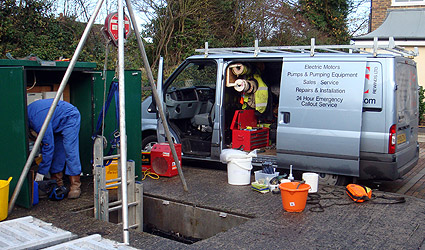User advice
If your house is connected to a sewage pump station or treatment plant then this page can save you money, though it’s just as relevant if you’re connected to the main sewer system – for although your water rates cover the cost of maintaining the pump stations between your house and the treatment works, a few simple steps can help the environment.
What should go in the sewer?
Sewage pump stations and treatment plants are only designed to handle foul water, natural human waste and biodegradable products, all other non-biodegradable household waste should not disposed of through the drainage system as it will almost inevitably cause problems.
And what should not...
All non-biodegradable products; including nappies, baby wipes, sanitary towels, cleaning rags, cotton buds, condoms and incontinence materials should be bagged and put in a refuse bin. If flushed, they can easily block a pump causing a breakdown and resultant emergency call out. In the trade this referred to as ‘ragging’ and a badly ragged pump chamber may mean costly sewage removal by tanker (tankerage).
Cooking oils and fats cool down, separate from the water and coagulate within pipework, pumps or in the settlement tanks of a treatment plant. As they’re lighter than water they then float to the surface forming a crust that then affects automatic controls.
When they form, these solids have to be broken up by manual force or by jetting and for establishments like restaurants that generate a lot of grease, this may be necessary every three months.
To stop this, restaurants and hotels should install a grease trap, whist private individuals should pour any fat or oil into a container such as an empty tin, allow it to solidify, and dispose of it in the bin.


Feed the birds! A truly green option is to mix used fat with nuts and seeds and feed it to the birds – they’ll appreciate it far more than your drains will. For more details see www.rspb.org.uk
Syringes, needles, medicines, paint, solvents, garden and photographic chemicals all need special care and your local authority will be able to help with their disposal at safe collection points. Please never flush them or pour them down the sink, they endanger the lives of the engineers that maintain the sewage system.
These simple guidelines can help stop pump station breakdown. Your pump station or treatment plant will still require regular servicing - but there’ll be less chance of an unexpected, and unwelcome, surprise!
